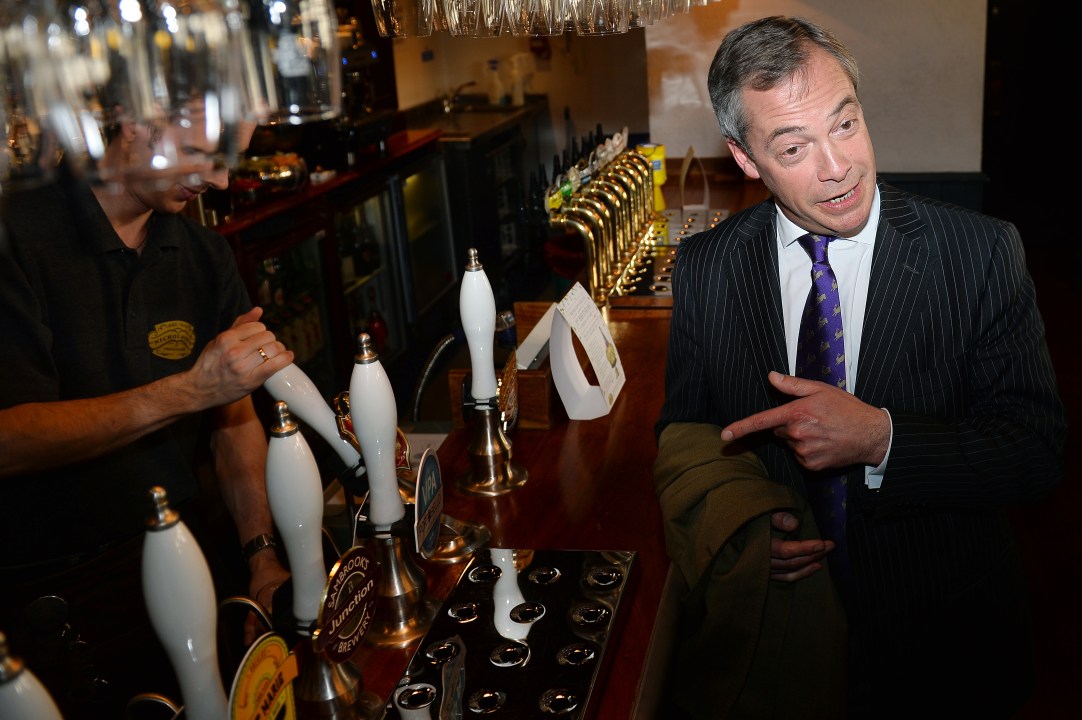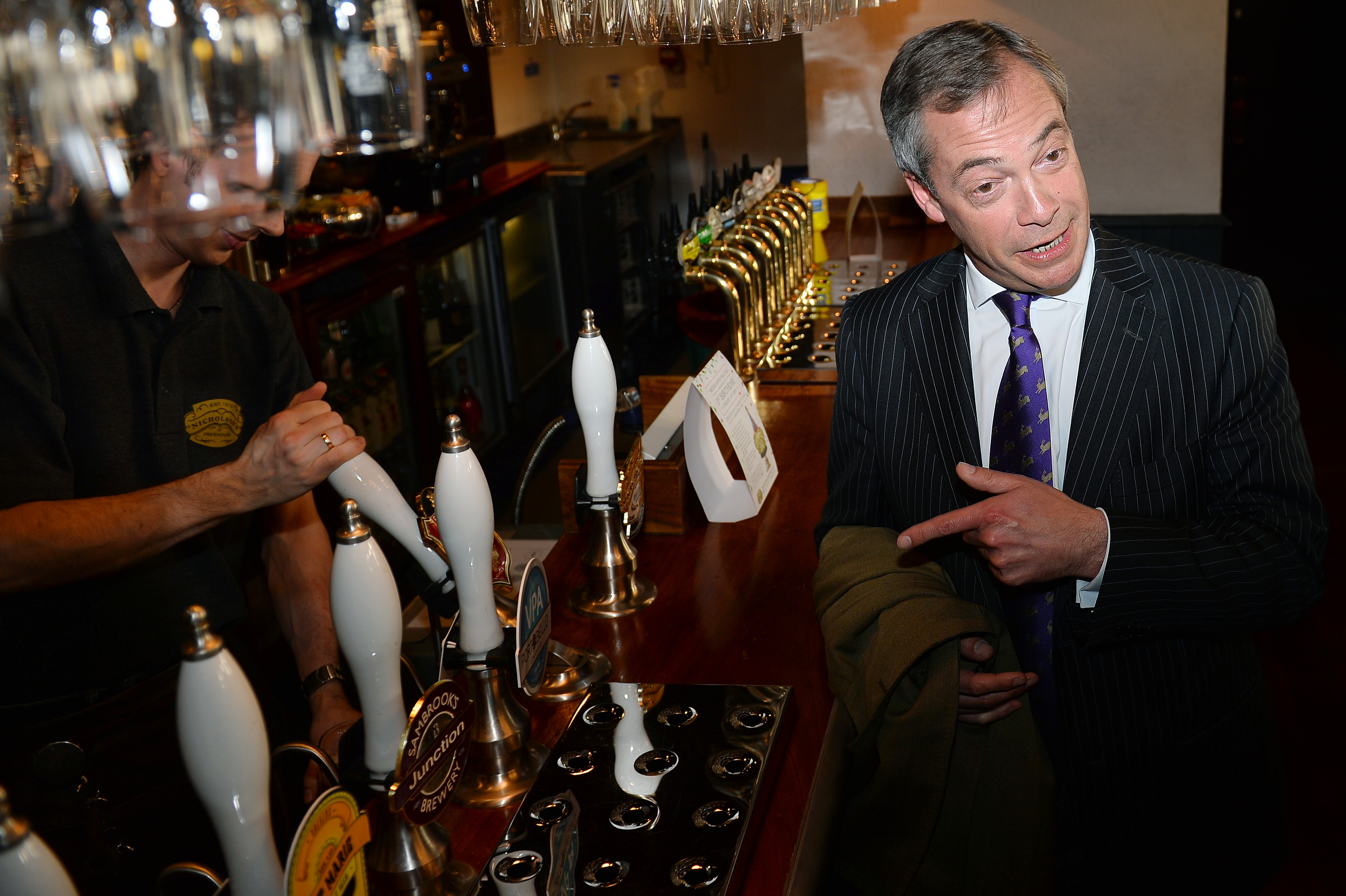I am not quite sure I understand why Nigel Farage opted to launch UKIP’s Aberdeen by-election campaign in Edinburgh. Then again, UKIP are a puzzling party. In any event, it all went rather well.
Not just because forcing Nigel Farage to “flee” and take “sanctuary” in a pub is the kind of hardship up with which the UKIP leader can fondly put, but rather because the sight of Mr Farage being jostled and shouted down by left-wing “radicals” is one of the few things liable to provoke some measure of sympathy for UKIP north of the border.
UKIP thrives on farce and chaos. The goons from something calling itself the “Campaign for Radical Independence” ensured that a visit that would otherwise passed almost un-noticed received plenty of coverage. Heckuva job, lads. But what else is to be expected from folk who swank around the place shouting “You’re a racist, go home to England” ? You’d almost think this stunt was planned by the boys from The Daily Mash.
All this was tedious and typical student juvenilia. More interesting was the reaction to this mini-brouhaha. Across Twitter and Facebook nationalists and lefties chirped their satisfaction. No platform for Farage in Scotland! Whae’s like us?! We are, you see, “genetically allergic to windbags (and xenophobes)“.
As it happens I have little time for UKIP’s politics but this is scarcely the point. No-one is quite as unbearably smug as a Scotsman convinced of his moral superiority. Not even an Englishman. The unco guid were out in force yesterday and proved as revolting a sight as always. It is not enough to disagree with Mr Farage’s politics, you see, it is important that he be denied the opportunity to even make his point. It is, yet again, a question of standing.
The hounding of Farage is a reminder that Scotland – or at least Scottish politics – is not quite as generous, open-minded and tolerant* a place as it likes to fancy itself. There is, it seems, a narrow spectrum of views deemed acceptable or legitimate. Anyone who falls outside that range can be ignored or, better still, suppressed.
Now the SNP and UKIP are certainly different beasts but it seems obvious that one reason UKIP has failed to win support in Scotland is that Scotland already has a well-established and well-organised nationalist party. If SNP MSPs pretty much run the gamut from Tartan Tories to Tartan Trots via Republicans and orthodox Social Democrats, their voters are more diverse still. The SNP is no longer just a party of protest but a good dollop of its support remains predicated upon dissatisfaction with the Tories and Labour alike.
Equally, many SNP votes are cast as a declaration of cultural affinity or as an expression of national difference. In this limited respect too they (or some of them anyway) are closer to UKIP votes than the party leadership (or large parts of the Tartan commentariat) would like you to believe. It is not so much a question of policy as of mentality.
As David Torrance wrote last week, the parties:
[A]re similar in terms of impetus, rhetoric and leadership, not their respective policy agendas. Compare and contrast the following: ‘We believe in the right of the people of the UK to govern ourselves, rather than be governed by unelected bureaucrats in Brussels.’ (N. Farage) It is ‘fundamentally better for us all, if decisions about Scotland’s future are taken by the people who care most about Scotland, that is, by the people of Scotland.’ (Independence Declaration)
For some reason pointing this out annoys Scottish nationalists. Ironies abound. For instance, UKIP’s definitional policy – leaving the EU – would scarcely be considered controversial in Norway, a land the SNP frequently cite as an example of what an independent Scotland could and should aspire to be. Yet, in a Scottish or British context, this is considered the stuff of lunatic extremism.
The evidence available at this juncture suggests leaving the EU is a less popular notion in Scotland than it is in England. Nevertheless polls report that roughly one in three Scottish voters would opt to leave the EU. Observant psephologists will note that this is not wildly different to the proportion who favour withdrawing from the United Kingdom. It is not obvious that one of these ideas is a priori absurd and the other plainly common sense.
And so we now see Alex Salmond arguing, with a straight face, that the best way for Scotland to ensure it remains within the EU is to vote to leave the UK. Well, maybe. It is certainly true that the Conservative’s european policy is a shambles (a subject to which we shall return later) but, then again, you could say something similar about the SNP’s outline of exactly how an independent Scotland would mesh with the rump UK (to say nothing of Brussels).
Anyway, the hounding of Nigel Farage will have done UKIP no harm. But it was still a depressing reminder that Scotland is sometimes a smaller place than we like to think it. And if nothing else, labelling Farage and his party “fascist scum” leaves you with no vocabulary with which to describe actual fascists. It debases the coinage, if you will, and running folk out of town is a queer way of demonstrating your “progressive” credentials.
*Tolerance means putting up with things you find disagreeable, not with views you actually like.








Comments